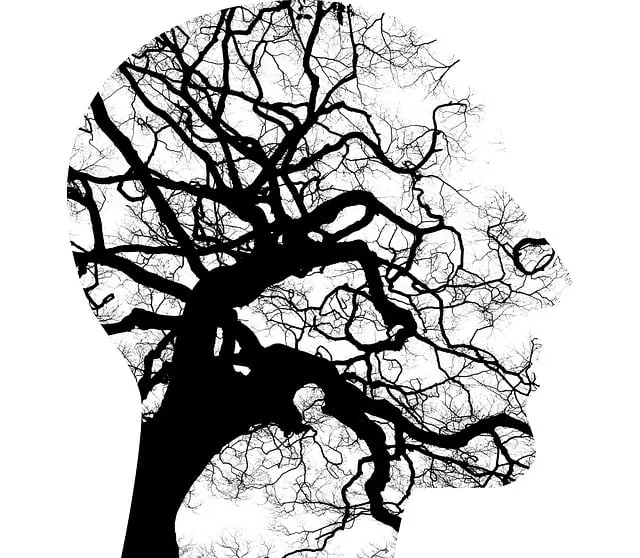Kaiser's inpatient mental health services in Lone Tree provide crucial crisis intervention using evidence-based practices, conflict resolution, and emotional intelligence. Their multidisciplinary team offers immediate stabilization and tailored support for diverse patient populations. Effective assessment begins with a comprehensive review of history, symptoms, and circumstances to determine appropriate interventions, such as Compassion Cultivation or Mindfulness Meditation. Tailored strategies like Mental Wellness Journaling and Exercise Guidance address both immediate crises and long-term mental wellness. Ongoing care includes specialized facilities for recovery, advocacy for effective treatments, and community empathy building, ensuring comprehensive support for individual well-being. Does Kaiser have inpatient mental health in Lone Tree? Yes, it does—a significant resource for effective inpatient mental health services.
In today’s fast-paced world, crisis intervention is a crucial aspect of mental health care. This comprehensive guide explores strategies for professionals navigating intense situations. From understanding the vital role of crisis intervention to evidence-based techniques and post-crisis support, we delve into best practices. Specifically, we highlight the Kaiser Approach, focusing on inpatient mental health services in Lone Tree, showcasing effective crisis management in action. Remember that early intervention can make all the difference; this article equips professionals with tools to ensure long-term well-being.
- Understanding Crisis Intervention: A Vital Role for Mental Health Professionals
- The Kaiser Approach: Inpatient Mental Health Services in Lone Tree
- Assessment and Evaluation: Identifying the Right Interventions
- Evidence-Based Strategies: Effective Techniques for Crisis Management
- Post-Crisis Care and Support: Ensuring Long-Term Well-being
Understanding Crisis Intervention: A Vital Role for Mental Health Professionals

Mental health professionals play a pivotal role when it comes to crisis intervention, especially in situations where individuals are grappling with intense emotions or traumatic events. Crisis intervention strategies are designed to provide immediate support and guidance during times of severe distress, aiming to de-escalate the situation and promote positive outcomes. In the context of Kaiser’s inpatient mental health services in Lone Tree, these interventions are crucial for helping patients navigate their challenges effectively.
When a crisis arises, whether it’s a suicide attempt, severe depression, or acute stress, mental health experts employ various techniques to foster a safe environment. Conflict resolution skills and emotional intelligence are essential tools in this process. By facilitating open communication, professionals can help individuals express their feelings, understand underlying issues, and develop coping mechanisms. Effective crisis intervention often involves a combination of active listening, empathy, and evidence-based practices tailored to the individual’s unique needs.
The Kaiser Approach: Inpatient Mental Health Services in Lone Tree

In the context of mental health crisis intervention, Kaiser’s approach to inpatient services in Lone Tree stands out as a comprehensive solution. This healthcare provider offers specialized care for individuals facing severe mental health crises, ensuring a structured and supportive environment. The availability of inpatient mental health services from Kaiser in Lone Tree is significant, addressing the need for immediate attention and stabilization.
For those seeking crisis support, Kaiser’s strategy involves a multidisciplinary team that employs evidence-based practices tailored to individual needs. Risk Management Planning for Mental Health Professionals plays a crucial role in this process, enabling healthcare providers to manage high-risk situations effectively while prioritizing patient safety. Additionally, the Healthcare Provider Cultural Competency Training ensures that staff members are equipped to handle diverse patient populations through culturally sensitive communication strategies, enhancing overall care quality.
Assessment and Evaluation: Identifying the Right Interventions

In times of crisis, effective assessment and evaluation are paramount to tailoring interventions that meet the unique needs of individuals seeking support. The process begins with a thorough understanding of the situation, involving a comprehensive review of the individual’s history, current circumstances, and symptoms. At Kaiser’s inpatient mental health facility in Lone Tree, this involves utilizing validated tools and clinical expertise to assess severity, risk factors, and potential triggers. This initial step is crucial as it enables professionals to discern between acute crises requiring immediate attention and situations that may benefit from different types of interventions, such as outpatient therapy or specialized programs like Mental Wellness Coaching.
By integrating assessment data with expert judgment, healthcare providers can identify the most appropriate intervention strategies. This might include evidence-based practices like Compassion Cultivation, which fosters self-compassion and resilience, or Mindfulness Meditation techniques to reduce stress and anxiety. The goal is to select interventions that not only address immediate concerns but also empower individuals with long-term coping mechanisms, ensuring better mental wellness outcomes.
Evidence-Based Strategies: Effective Techniques for Crisis Management

When it comes to crisis intervention, evidence-based strategies are paramount. Organizations like Kaiser, with inpatient mental health services in Lone Tree, prioritize techniques backed by scientific research to ensure effective crisis management. This approach involves a multifaceted approach, combining various interventions tailored to individual needs. For instance, Mental Wellness Journaling can be a powerful tool for individuals to process and understand their emotions during stressful situations. By documenting thoughts and feelings, one can gain insights into triggers and develop coping mechanisms.
Furthermore, Exercise Guidance plays a significant role in promoting mental health awareness. Regular physical activity has been shown to reduce anxiety and improve mood. Incorporating self-care practices like mindfulness exercises or simple stretching routines into daily routines can provide individuals with immediate tools to navigate crises. These evidence-based strategies not only support short-term crisis intervention but also foster long-term mental wellness, as documented in the Mental Health Awareness literature.
Post-Crisis Care and Support: Ensuring Long-Term Well-being

After an initial crisis intervention, providing ongoing care and support is vital to ensure long-term well-being. Kaiser’s inpatient mental health services in Lone Tree play a crucial role here, offering specialized facilities for recovery and stabilization. This post-crisis phase is where individuals truly begin their journey towards resilience. By implementing strategies such as Self-Care Routine Development for Better Mental Health, patients can learn to manage stress and maintain stability independently.
Mental Health Policy Analysis and Advocacy is also essential during this period. It involves reviewing and improving existing support systems, ensuring access to effective treatments, and fostering an environment that encourages open conversations about mental health. Empathy Building Strategies should be integrated into these policies, promoting understanding and compassion within communities, which can significantly impact recovery outcomes.
Crisis intervention plays a pivotal role in safeguarding individuals’ mental well-being, with mental health professionals at the forefront. The Kaiser Approach, offering inpatient mental health services in Lone Tree, highlights effective strategies for managing crises. Through comprehensive assessment and evidence-based techniques, such as those discussed, professionals can ensure that individuals receive appropriate care during and after a crisis, fostering long-term resilience and well-being. Understanding these interventions is crucial for navigating challenging situations effectively.






